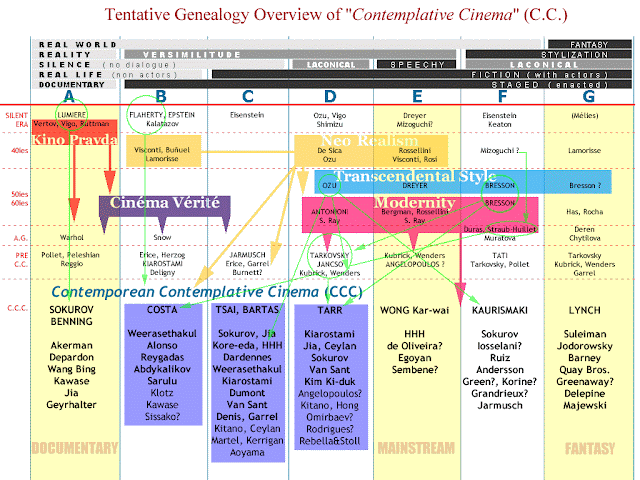Pedro Costa by Rosenbaum
A great introduction to the radical cinema of Pedro Costa by Jonathan Rosenbaum at the Chicago Reader on the occasion of a retrospective. And I highlight here the excerpts dealing with his contemplative traits, and I like a lot how Rosenbaum talks about it. Still Lives: The Films of Pedro Costa by Jonathan Rosenbaum, November 15, 2007 (read the full article at Chicago Reader ) Portuguese filmmaker Pedro Costa twists Hollywood inspiration in his tableaux of dispossession and poverty. “ At the same time, quietly telling whoever will listen that cinema is exactly the opposite of what 99% of the film world thinks, and he is getting more radical every day .” (Quintín on Costa cited by JR) "The cinema of Portuguese filmmaker Pedro Costa is populated not so much by characters in the literary sense as by raw essences—souls, if you will. This is a trait he shares with other masters of portraiture, including Robert Bresson, Charlie Chaplin, Jacques Demy, Alexander Dovzhenko, Carl Dreyer, Ke...
